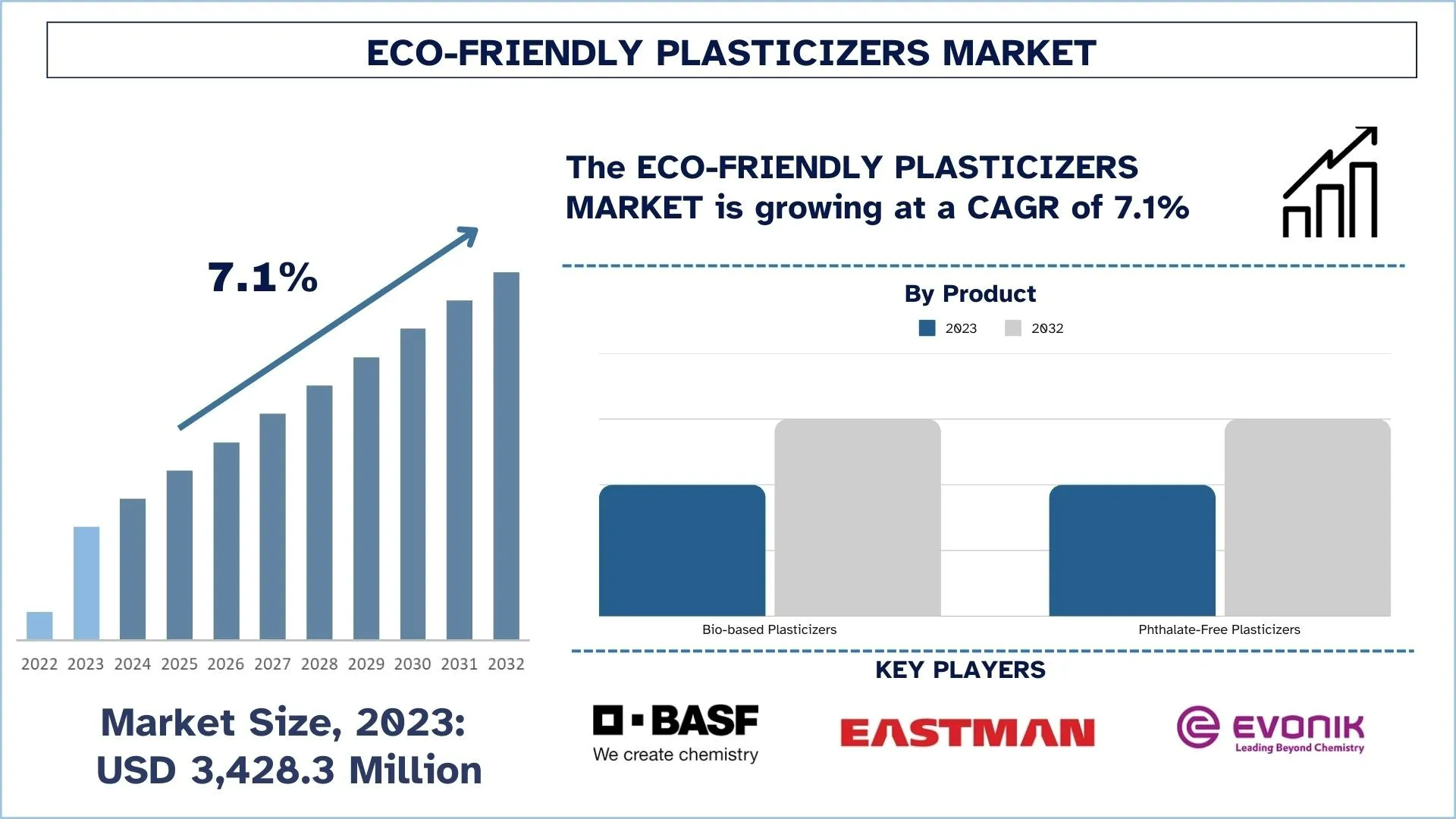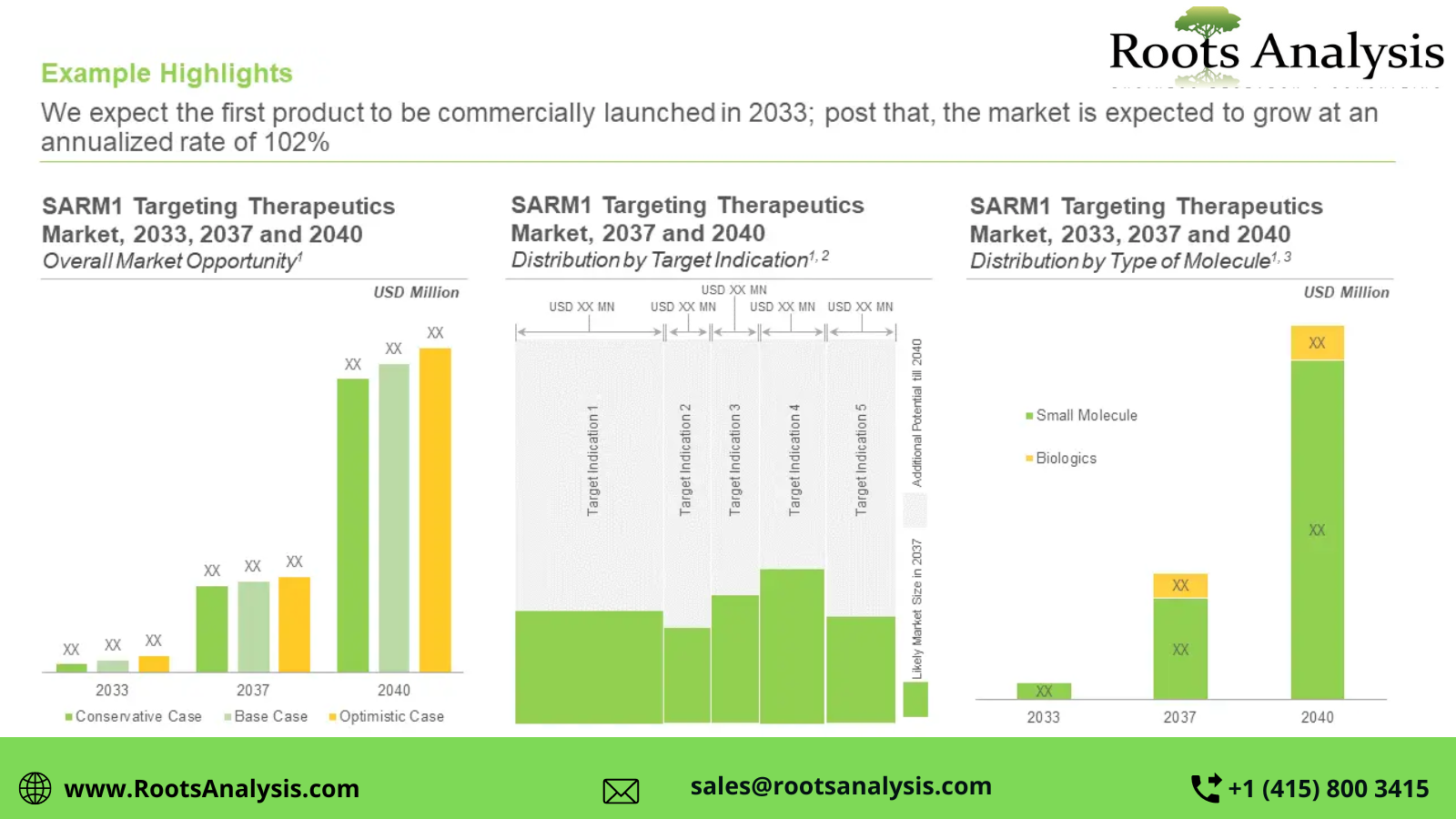Eco-Friendly Plasticizers Market Report, Size, Share, Trends & Analysis 2032

According to the Univdatos, Stringent regulations on toxic plasticizers, rising demand for sustainable materials, and increasing adoption of bio-based alternatives in key industries would drive the global scenario of the Eco-Friendly Plasticizers market. As per their “Eco-Friendly Plasticizers Market” report, the global market was valued at USD 3,428.3 Million in 2023, growing at a CAGR of 7.1% during the forecast period from 2024 - 2032 to reach USD Million by 2032.
The market for environmental plasticizers expands rapidly because various industries globally adopt sustainable non-harmful plasticizers instead of traditional phthalates. The market demand for environment-friendly plasticizers continues to strengthen because manufacturers utilize renewable substances like plant oils and citric acid to create these products due to rising awareness about traditional plasticizer-related safety issues. Manufacturers implement bio-based plasticizers to meet regulatory demands within food packaging and healthcare together with children's toys industries. The combination of increased consumer sustainability focus together with product sustainability preferences leads to substantial innovation activities and investment for developing safe alternatives to plasticizers. High-performance environmentally responsible plasticizers are being developed through technological innovations as well as continuous regulatory compliance research which satisfies both market standards and consumer demands.
End User Industries fostering the growth of the Eco-Friendly Plasticizers market
The Eco-Friendly Plasticizers market is significantly influenced by key end-user industries that foster its growth:
1. The packaging sector stands as a major market segment that needs sustainable plasticizers because people want eco-friendly packaging items made without hazardous materials that break down easily. Food and drink packaging that harms the environment less leads manufacturers worldwide to use safer plasticizers for their customer goods.
2. Eco-friendly plasticizers serve both safety requirements and consumer expectations when the automotive sector builds environmentally-friendly vehicles. Plasticizers help create materials for automobile dashboards and seats and wire insulation to make automotive production more environmentally friendly.
3. Construction companies now use sustainable plasticizers as ingredients in flooring and coating materials, plus wires because of this new approach to materials selection. The new materials meet environmental and health safety standards to keep producing elastic building solutions for green architectural advancement.
4. To ensure customer health the consumer sector now uses environmentally friendly plasticizers in household products due to safety requirements and public concern about health risks.
5. Medical Device producers pick plasticizers that follow health-regulated standards and improve patient security to make their medical equipment. Medical devices need eco-friendly plasticizers because these materials provide safer options when they touch human skin during use.
These industries are collectively driving the widespread adoption of eco-friendly plasticizers, as they aim to reduce the environmental impact of their products while ensuring consumer safety and compliance with regulations.
Access sample report (including graphs, charts, and figures): https://univdatos.com/reports/eco-friendly-plasticizers-market?popup=report-enquiry
Conclusion
The eco-friendly plasticizers market demonstrates strong growth patterns because end-user markets, including packaging and automotive sectors, along with construction, consumer goods, and medical devices, adopt these safer non-toxic plasticizers. This transformation in the plasticizer market moves forward because of regulatory requirements and heightened consumer knowledge coupled with worldwide sustainability trends. Industrial adoption of bio-based along with environmentally friendly plasticizers is predicted to become standard practice, which will create a sustainable manufacturing future for plastics.
Contact Us:
UnivDatos
Contact Number - +1 978 733 0253
Email - contact@univdatos.com
Website - https://univdatos.com
Linkedin- https://www.linkedin.com/company/univ-datos-market-insight/mycompany/





